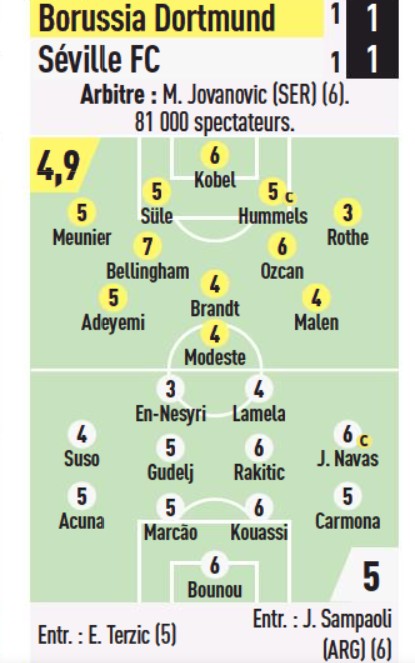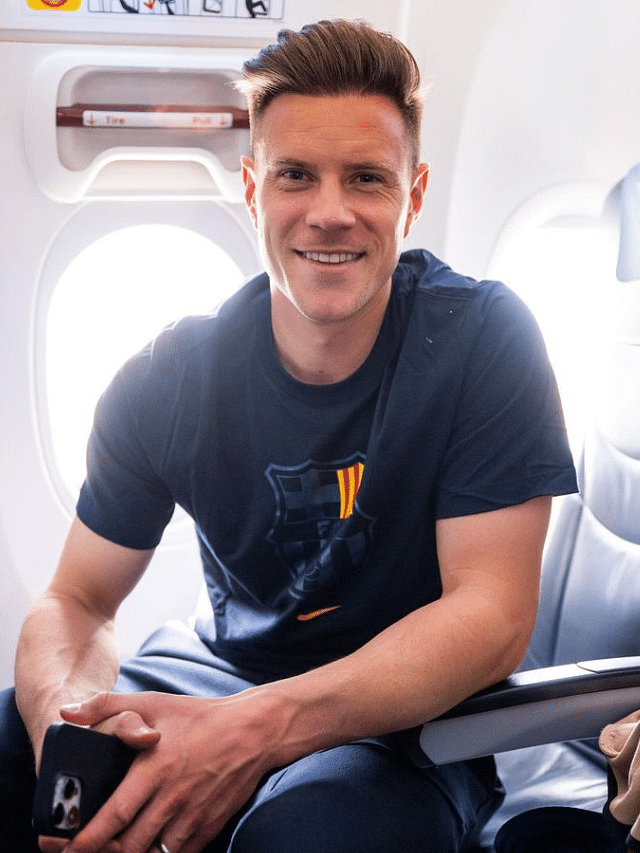
The Clash of Titans: A UCL Player-vs-Player Analysis
The UEFA Champions League, football’s most prestigious club competition, is a theatre where legends are forged and dreams are realized. While the beautiful game is inherently a team sport, the narrative of the UCL is often punctuated by moments of individual brilliance, by head-to-head duels that transcend tactics and define outcomes. These player-vs-player analyses are not merely about comparing statistics; they delve into contrasting styles, leadership qualities, tactical implications, and the sheer will to dominate on Europe’s grandest stage. This article dissects some of the most compelling individual rivalries and comparisons that have shaped, and continue to shape, the UCL landscape.
The Eternal Debate: Lionel Messi vs. Cristiano Ronaldo
No discussion of individual brilliance in the Champions League can begin without acknowledging the duopoly of Lionel Messi and Cristiano Ronaldo. For over a decade, these two titans not only redefined goalscoring records but also imposed their will on Europe’s elite competition, often directly or indirectly battling each other for supremacy.
Cristiano Ronaldo, the undisputed "Mr. Champions League," boasts an unparalleled five UCL titles, four with Real Madrid and one with Manchester United. His game is characterized by an insatiable hunger for goals, a predatory instinct in the box, incredible aerial prowess, and an unmatched clutch gene. Ronaldo thrives on the big occasion, consistently delivering crucial goals in knockout stages, often through sheer force of will and athletic superiority. His runs off the shoulder, powerful shots, and penalty box presence made him the ultimate offensive weapon, capable of single-handedly turning games with a moment of brilliance. His hat-tricks against Atlético Madrid and Wolfsburg, or his overhead kick against Juventus, are etched into UCL folklore.
Lionel Messi, on the other hand, with four UCL titles (all with Barcelona), represents a different kind of genius. His brilliance lies in his unparalleled dribbling ability, exquisite close control, visionary passing, and a deceptive yet lethal finishing touch. Messi isn’t just a goalscorer; he’s a complete attacking orchestrator. He drops deep to dictate play, weaves through entire defenses with mesmerizing runs, and creates chances for others with surgical precision. His goals against Manchester United in the 2009 and 2011 finals, or his iconic solo effort against Real Madrid in the 2011 semi-final, exemplify his artistry and ability to transcend the tactical framework.
The comparison isn’t about who is "better" but about contrasting paths to unparalleled success. Ronaldo’s directness and ruthlessness, a pure goal-scoring machine, against Messi’s artistic, playmaking wizardry. Their indirect rivalry, often culminating in them facing off in El Clásico matches within the UCL context, pushed both to unimaginable heights, setting records that may stand for generations. Their influence transcended their individual performances, inspiring their teammates and striking fear into opponents.
Midfield Maestros: Kevin De Bruyne vs. Luka Modric
Moving to the engine room, the midfield battle often dictates the tempo and flow of a UCL match. Two modern maestros who embody different facets of midfield genius are Manchester City’s Kevin De Bruyne and Real Madrid’s Luka Modric.
Luka Modric, a five-time UCL winner with Real Madrid, is the epitome of elegance, control, and tactical intelligence. His game is built on exceptional vision, exquisite first touch, and an uncanny ability to dictate the pace of play. Modric rarely loses possession, constantly recycling the ball, breaking lines with incisive passes, and providing the crucial link between defense and attack. He’s the metronome of Real Madrid’s dominant midfield, capable of unlocking defenses with a precise through-ball or a sudden change of pace. His understated brilliance allows his teammates to shine, yet his absence is always keenly felt. His performances in the latter stages of Real Madrid’s UCL triumphs, particularly his control and composure under pressure, were instrumental.
Kevin De Bruyne, the creative lynchpin of Pep Guardiola’s Manchester City, is a more direct and explosive force. His game revolves around his incredible passing range, devastating crosses, and powerful long-range shots. De Bruyne is a master of the assist, capable of finding teammates in impossible spaces with pinpoint accuracy. He possesses a unique ability to see passes others don’t, often delivering the final ball that unlocks the tightest defenses. While Modric orchestrates with subtle elegance, De Bruyne blasts open doors with his incisive contributions. His relentless energy and goal contributions have been pivotal in City’s recent UCL pushes, culminating in their maiden title in 2023.
The contrast here is between Modric’s deep-lying control and tempo-setting, a conductor of the orchestra, versus De Bruyne’s more advanced, direct playmaking, the lead soloist delivering breathtaking moments. Both, however, possess an elite footballing brain and the technical prowess to dominate the most demanding midfield battles in Europe.
Defensive Pillars: Virgil van Dijk vs. Sergio Ramos
While attackers grab headlines, the foundation of any successful UCL campaign lies in a resolute defense. Two modern defensive titans, Virgil van Dijk and Sergio Ramos, represent contrasting but equally effective approaches to commanding the backline.
Sergio Ramos, a four-time UCL winner with Real Madrid, is a legendary figure known for his aggressive leadership, incredible aerial threat, and an uncanny knack for scoring crucial goals, especially in big UCL games. Ramos is a warrior, a physical and vocal leader who embodies Real Madrid’s never-say-die spirit. His tackling is uncompromising, his reading of the game sharp, and his presence intimidates opponents. Beyond his defensive duties, his famous last-minute headers in the 2014 and 2016 UCL finals showcased his unique ability to impact the game at both ends, often through sheer force of will. He might concede a penalty or pick up a booking, but his influence on Real Madrid’s multiple UCL triumphs is undeniable.
Virgil van Dijk, instrumental in Liverpool’s 2019 UCL triumph, represents the modern, composed, and dominant center-back. His game is built on immense physical presence, exceptional positional awareness, and a calm demeanor under pressure. Van Dijk rarely goes to ground, preferring to shepherd attackers and intercept passes with his long stride and impeccable timing. His aerial dominance is unparalleled, both defensively and in attacking set-pieces. He is also a fantastic passer, initiating attacks from the back with accurate long balls. Van Dijk transformed Liverpool’s defense, bringing a sense of solidity and confidence that propelled them to European glory. His one-on-one defending is legendary; few players can genuinely beat him in a foot race or a physical duel.
This comparison highlights the contrast between Ramos’s fiery, proactive, and often high-risk leadership, and Van Dijk’s calm, authoritative, and almost flawless positional play. Both, however, are irreplaceable leaders who elevate their respective defenses and inspire their teams to reach the pinnacle of European football.
The Future Kings: Erling Haaland vs. Kylian Mbappé
Looking to the future, two young phenoms are already establishing themselves as the next generation of UCL icons: Erling Haaland and Kylian Mbappé. Both possess incredible talent and have already broken numerous records in the competition.
Erling Haaland, the Norwegian goal machine, is a pure number nine with an astonishing appetite for goals. His game is defined by blistering pace, immense physical power, and an almost unnatural finishing ability. Haaland gets into incredible positions, makes intelligent runs, and converts chances with clinical precision. He is a nightmare for defenders, combining brute force with a refined touch. His record-breaking goal tallies for Borussia Dortmund and Manchester City in the UCL, including a stunning five-goal haul against RB Leipzig, indicate a player destined to rewrite the competition’s scoring records. He’s a force of nature, an unstoppable juggernaut when in full flow.
Kylian Mbappé, the French sensation, is a more versatile and electrifying attacker. His game is built on electrifying pace, mesmerizing dribbling skills, and an uncanny ability to score from various positions. Mbappé can play as a winger, a central striker, or a false nine, constantly tormenting defenders with his directness and agility. He creates chances for himself and others, often leaving opponents in his wake with a burst of speed. His hat-trick against Barcelona at Camp Nou and his consistent goal contributions for PSG in the UCL highlight his big-game temperament and explosive talent. Mbappé is not just a scorer but also a creator, a player who can single-handedly dismantle defenses with his multifaceted skillset.
This comparison is about the archetypal striker (Haaland) versus the multi-dimensional forward (Mbappé). Both are already world-class and are set to dominate the UCL for the next decade, promising a new era of individual brilliance and a fascinating rivalry. Their direct encounters, such as the 2020 Champions League semi-final between PSG and Dortmund, offer a tantalizing glimpse into their future battles for European supremacy.
Goalkeeping Giants: Alisson Becker vs. Thibaut Courtois
Finally, the last line of defense, the goalkeepers, often make the difference between victory and defeat. Two modern giants between the sticks, Alisson Becker and Thibaut Courtois, exemplify the evolving role of the shot-stopper.
Alisson Becker, Liverpool’s Brazilian number one, is a quintessential modern sweeper-keeper. His game is characterized by exceptional shot-stopping, particularly in one-on-one situations, and outstanding distribution. Alisson is incredibly composed under pressure, often initiating attacks with accurate long passes or calmly playing out from the back. His agility, reflexes, and decision-making make him a formidable barrier. His crucial save against Napoli in the group stage of Liverpool’s 2019 UCL-winning campaign, or his general commanding presence, showcased his value. He’s calm, reliable, and crucial to Liverpool’s high defensive line.
Thibaut Courtois, Real Madrid’s Belgian giant, is renowned for his imposing physical presence, incredible reach, and spectacular reflex saves. Courtois commands his area with authority, excelling at claiming crosses and dominating aerial duels. His most iconic UCL performance came in the 2022 final against Liverpool, where he made an astonishing nine saves, many of them world-class, to single-handedly secure Real Madrid’s 14th title. He is a wall, often making saves that defy belief, especially from close range.
The comparison here is between Alisson’s all-round modern goalkeeping, combining shot-stopping with distribution and sweeping, versus Courtois’s more traditional, yet still world-class, approach of sheer shot-stopping prowess and aerial dominance. Both have proven their ability to be the difference-makers in the biggest UCL moments, highlighting that even in a team sport, individual heroics at the very last line of defense can be paramount.
Conclusion
The UEFA Champions League is a grand stage where team collective strength is paramount, but it is also a canvas upon which individual brilliance is painted in vivid strokes. The player-vs-player analyses showcased here — from the GOAT debate of Messi and Ronaldo to the emerging rivalry of Haaland and Mbappé, and the crucial contributions of midfielders, defenders, and goalkeepers — underscore the multifaceted nature of footballing excellence. These individual duels, often indirect but always impactful, provide a compelling sub-narrative to the broader team competition. They remind us that while a well-oiled machine is essential, it is often the flash of genius, the moment of defiance, or the sheer will of an individual that ultimately decides who lifts the coveted Champions League trophy. As the competition evolves, new rivalries will emerge, new legends will be forged, and the fascinating interplay of individual talent within the team framework will continue to captivate football fans worldwide.



